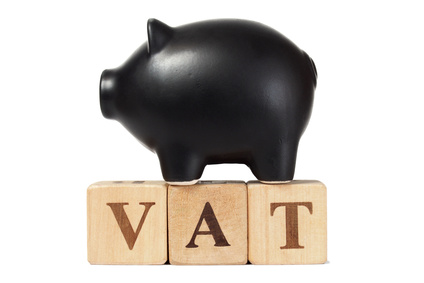HMRC have increased the threshold for VAT registration to £83,000 for the year 2016-17. The threshold was £82,000 for 2015-16.
If your turnover will reach this threshold over a 12 month period then you must register your business for VAT. This equates to a monthly turnover of around £6,900. You should keep a record of your turnover each month for a rolling 12 month period as you will have 30 days to register for VAT when you expect the total to go over £83,000. Your rolling 12 month record can start at any month i.e. June to May, July to June, etc.
Your VAT taxable turnover will include all items or services you sell which are subject to VAT. This will include zero rated goods and services but will exclude goods and services which are exempt from VAT.
You can voluntarily register for VAT before you reach this threshold and for many businesses it is advantageous to do so. If everything you sell is exempt from VAT you cannot register for VAT.
 When you register for VAT you should consider which VAT scheme will be most beneficial for your business. If you don’t have many purchases which have VAT on you should look at the advantages of the Flat Rate Scheme. Whilst you still charge 20% VAT to your customers you pay HMRC a percentage of your gross sales rather than paying the 20% charged less the VAT reclaimed on purchases. If you choose the Flat Rate Scheme you can reduce the percentage you pay by 1% for the first year. The percentage of VAT you pay HMRC is dependent on your industry. The Flat Rate VAT rates can be found here.
When you register for VAT you should consider which VAT scheme will be most beneficial for your business. If you don’t have many purchases which have VAT on you should look at the advantages of the Flat Rate Scheme. Whilst you still charge 20% VAT to your customers you pay HMRC a percentage of your gross sales rather than paying the 20% charged less the VAT reclaimed on purchases. If you choose the Flat Rate Scheme you can reduce the percentage you pay by 1% for the first year. The percentage of VAT you pay HMRC is dependent on your industry. The Flat Rate VAT rates can be found here.
If your business purchases a lot of goods or services with VAT you can reclaim you should decide whether to use the Standard or Cash Accounting Schemes. On the Standard Accounting Scheme you pay and reclaim VAT based on the invoice date. On the Cash Accounting Scheme you pay and reclaim VAT based on the date you receive and make payment. The former scheme is advantageous if you are a late payer and want to claim VAT back on your purchase before you pay for it. The Cash Accounting Scheme is advantageous if your customers are late payers as you only pay VAT when they pay you.
Whichever scheme you choose make sure it works well for your business. If you use the Standard Accounting Scheme you would want to make sure all your purchase invoices are dated before the end of your VAT quarter not at the beginning of the next quarter. If you use the Cash Accounting Scheme you would want to make sure you pay for your purchases by the end of the VAT quarter and not at the beginning of the next VAT quarter.
If you receive regular refunds of VAT then you should consider applying to submit monthly VAT returns instead of quarterly ones which will help your cashflow.
Once you are VAT registered keep your accounts up to date and ensure you submit your returns and pay them on time to avoid receiving penalty surcharges. And if you don’t have time to do it yourself ask for help.
Leave a Reply